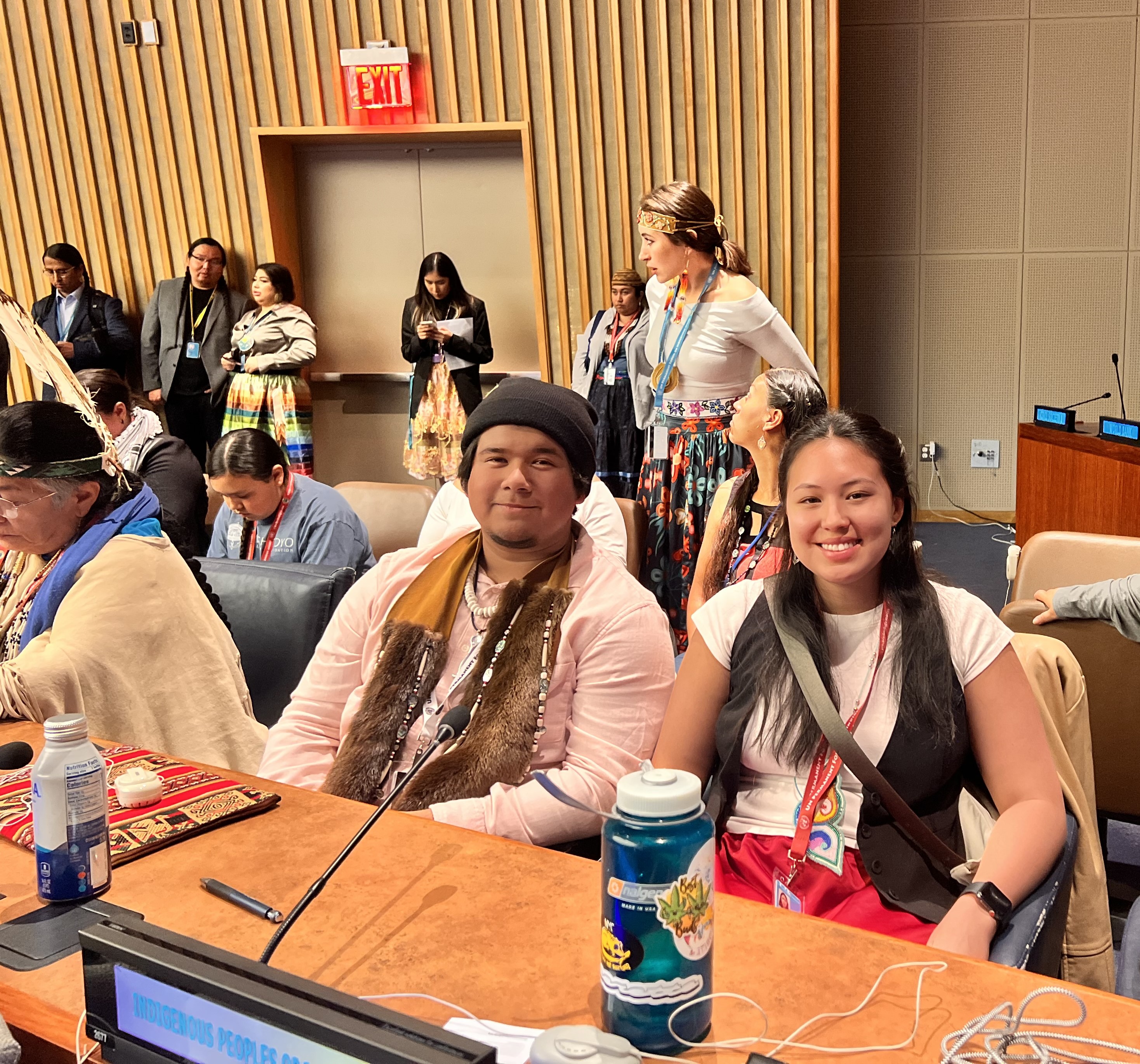Varsity Blues women's water polo goalie Averi Doxtator was invited to the United Nations in New York.

Varsity Blues women's water polo goalie Averi Doxtator was recently invited to the United Nations headquarters in New York City. Doxtator, who is of Anishinaabe, Oneida and Dakota ancestry, represented the National Association of Friendship Centers (NAFC) at the 22nd session of the United Nations Permanent Forum on Indigenous Issues (UNPFII).
"The overall experience was incredible and powerful," said Doxtator, a double major student of peace, conflict and justice, and environmental ethics at U of T. "It brought together Indigenous peoples from around the world to discuss the struggles they're facing in their regions. I think the most surprising thing to hear was that many of the histories are similar, which makes the Permanent Forum so important to be able to learn from one another and share our stories."
Doxtator is the current president of the NAFC's Indigenous youth council, tasked with advocating for the voices of Indigenous youth across Canada. She also reports to the board of directors of the NAFC as the youth executive representative.
During her time in New York, Doxtator participated in the Global Indigenous Youth Caucus (GIYC) preparation meetings for the UNPFII. The theme of the 22nd session was "Indigenous Peoples, human health, planetary and territorial health and climate change: a rights-based approach".
The GIYC put together a statement calling for action from the discussion on the six mandated areas of the Permanent Forum (economic and social development, culture, environment, education, health and human rights), with reference to the United Nations Declaration on the Rights of Indigenous Peoples and the 2030 Agenda for Sustainable Development.
Doxtator was asked to deliver the GIYC statement alongside Spenser Jaimes of the coastal Chumash Band. Together, Doxtator and Jaimes addressed the theme of climate change action needing to be centered around Indigenous traditional ecological knowledge in order to achieve the 2030 sustainable development agenda goals.
"In our statement we highlighted the only way to achieve the 2030 sustainable development goals is to look to Indigenous people traditional ecological knowledge of the land to transition to sustainability," she added. "Somehow people seem to forget that Indigenous people lived on the land for many generations and were able to live in balanced and respectful ways that didn't harm or deteriorate the land. Therefore, moving forward, space needs to be given to Indigenous people at the table when it comes to creating climate change action."
